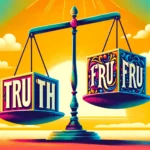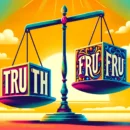Exam results frenzy hides a problem
Here’s a quiz question: on which day of the year does the Daily Nation sell most copies? The answer is: the day after the KCSE results are released. That duly happened last week: parents, teachers and pupils all bust a gut to get their copy. Why? Because the entire future of thousands of children can hang on what is revealed on that one day.
And so it happened last week. There were ululations and celebrations galore for the schools and pupils who featured in the top echelons. My own former school, and that of my wife, took two of the top four national positions, so I, too, could be forgiven if I were seen dancing for joy. But I think we need to be a little more circumspect in our revels. We need to examine a little more closely what this public examinations circus actually achieves for the nation.
Let’s start with what is being forgotten here. We all dwell on the top 100 pupils and schools – the tip; but what about the rest? Is anyone paying any attention to the very large base of this pyramid? Does anyone give a moment’s thought to what happens to the huge majority of children out there after this moment of intense public scrutiny?
The answer is simple: a mark is placed on their foreheads, which they may never be able to rub off for the rest of their lives. This mark says: ‘dropout’; ‘sub-standard’; ‘failure’. That we are willing to place such a mark on young children tells us a lot about our society and its values. Think about it: we take children into schools at age six or so; we start pouring facts, theorems and conjectures into their heads as gospel truths; we then ask the waifs to sit down at age twelve and sixteen and be subjected to public examination. On one particular day, at one particular time, regardless of their state of health or mind.
We know what will happen as we do this: a small minority will pass with ‘flying colours’; some will achieve acceptable mediocrity; most will get the damning letters ‘D’, ‘E’ and ‘F’ stamped onto their lives, and will land on the dust-heap. This happens every year, and we watch it and encourage it. And then we mouth platitudes like ‘our children are our future’ and ‘the country’s youth are its biggest asset’.
Let us go back to the genesis of this form of ‘education.’ It has its roots in the Industrial Revolution, when new factories and organisations were shooting up all over the world and needed a ready and willing workforce. But that world needed just a handful of top talents to assume leadership; and an army of worker bees with more basic skills. This army needed to have one thing above anything else: discipline. The worker platoons needed at all times to take orders, follow instructions and not ask too many questions. That way, the factory owners were happy and the masses were kept usefully deployed.
Even back in those days, a few visionaries could see the folly in this. John Dewey in the United States, Maria Montessori in Italy and Rudolf Steiner in Austria began to question the premise that all that children needed was to have facts poured into them. They began to wonder whether rigid arrays of knowledge fed in little drips all day long constituted an education. And they questioned whether a winner-takes-all competition culminating in an intense, very public examination would produce a better society.
The teaching methods developed by those out-of-the-box types have taken root in the world today. They discourage traditional measurement and damaging competition; they view children with respect and believe they can self-direct their learning in line with their aptitudes. They encourage creative thought and the utilisation of the full capacity of the brain.
The International Baccalaureate (IB) system is also sweeping across the world of education. This system emerged from the grassroots musings of reform-minded teachers and administrators, who set out to create a truly international curriculum for the modern age. Central to this system is the importance of inquiry rather than rote learning, and restoring the joy of wondering. It aims to instil compassion and appreciation in the child, as a platform for building a culture of learning that stretches over a lifetime.
The IB, Montessori and Waldorf systems are present in Kenya today in some form – but are only really available to a limited few. We must do more to rethink the fundamental principles of what we call ‘education’, and undertake a national programme of reform that looks at the philosophy of learning, not just the mundane setting of compulsory texts. It is long overdue. We could start with the age-old adage that the ancient Greek and Indian civilisations were asking us to understand: Children are not vessels to be filled; they are lamps to be lit.

Buy Sunny Bindra's book
UP & AHEAD
here »











